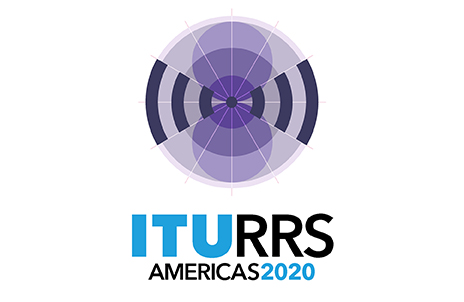Digital Revolution Spurs Greater Demand For Limited Radio-frequency Spectrum In The Americas

By Godson Umejiego, Correspondent US
The ITU Regional Radiocommunication Seminar 2020 for the Americas Region (RRS-20-Americas) was held virtually from 13-24 July in collaboration with the Caribbean Telecommunications Union (CTU).
Participants discussed future radio-frequency spectrum requirements for radiocommunication systems in the context of the outcome of the ITU World Radiocommunication Conference (WRC-19) held in Sharm el-Sheikh, Egypt, in 2019.
“The digital revolution is continuously opening doors to a variety of new applications that are spurring greater interest in, and demand for, the limited spectrum resource,” said ITU Secretary-General Houlin Zhao. “The Regional Radiocommunication Seminars are, therefore, an important tool to help our members promote the efficient and effective management of spectrum.”
The Seminar covered the regulatory framework for both terrestrial and space services and the procedures for recording of frequency assignments in the Master International Frequency Register (MIFR). It also included basic training on tools developed by ITU for frequency notices for those services and the technical examinations. Various tutorials also enabled participants to familiarise themselves with ITU notification procedures, as well as with the software and electronic publications made available by the ITU Radiocommunication Bureau to the Administrations of Member States and the ITU Radiocommunication Sector (ITU-R) Members.
“The Americas region continues to make great strides in expanding access to and use of ICTs, but more work is still needed to bring accessible and affordable telecommunications to all countries and to accelerate digital transformation,” said Director of the ITU Radiocommunication Bureau, Mario Maniewicz. “I look forward to continuing to work with our membership in the region towards the implementation of the decisions of WRC-19 and the preparatory process for the WRC-23.”
Forum: WRS-19 Outcomes: Challenges and opportunities for the Region
The RRS-20-Americas concluded with a Forum on “WRS-19 Outcomes: Challenges and opportunities for the Region”. Featuring panel sessions about the diverse radio communications services and systems, including among others: Digital TV, Broadband Satellites (GSO and non-GSO), IMT and other wireless broadband technologies, High-altitude platform station (HAPS), RLAN/Wi-Fi, Maritime and Aeronautical Systems, Intelligent Transport Systems, Emergency Communications, 5G Spectrum Pricing, and the WRC-23 Agenda.
In her welcome remarks, Secretary-General of the Caribbean Telecommunications Union, Bernadette Lewis noted that the organization has been working in the area of harmonizing spectrum management policies and practices for many years, including in recent times, coordinating the work of the Caribbean Spectrum Management Steering Committee and the Caribbean Spectrum Management Task Force, the regional bodies addressing radiofrequency spectrum issues. She added: “We are delighted to partner with ITU to enhance the capacity of our members to make effective use of the technology to achieve our goals.”
The main objective of the ITU Regional Radiocommunication Seminars is to extend assistance to Member States in spectrum management activities and the application of the ITU Radio Regulations (RR), with special attention to developing countries. The seminars are organized to complement the larger, biennial World Radiocommunication Seminars (WRS) so that all ITU countries and regions have ample opportunity to prepare for WRC-23, which will update the RR, the international treaty governing the use of radio-frequency spectrum and satellite orbital resources.
The seminar drew more than 350 participants from 38 countries, including 29 countries from the Americas Region, as well as 6 international organizations, and representatives of the telecommunication industry, operators, international organizations, associations, and academia from the Americas.






